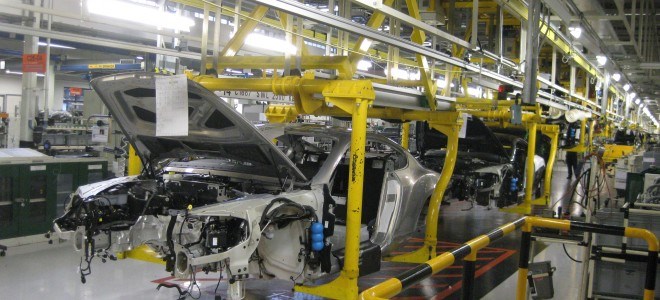The SMMT has revealed that UK automotive manufacturers turned over a record-breaking £77.5 billion in 2016.
Figures released today by the SMMT, from the UK automotive’s sustainability report, show that the industry has had its seventh consecutive year of growth.
Not only did productivity, production output and vehicle sales increase, but waste to landfill fell to a new low of 9% of all waste produced.
UK car and commercial vehicle production and new vehicle registration volumes grew to record levels in 2016, up 8.9% and 2% respectively.
Meanwhile, employment in manufacturing remained stable at 169,000 jobs, resulting in productivity reaching a record high of 11.8 vehicles produced for each person employed in the industry.
The average manufacturing worker generated more than £130,000 for the British economy, up 9.8% on 2015.
The number of livelihoods dependent on the sector as a whole stood at 814,000 across manufacturing, retail, distribution and repair services.
The record turnover by UK motor manufacturing represents a 9% increase on 2015, with the additional value added to the UK economy rising 7.3% to £21.5bn.
The industry also upped its investment in innovation, with R&D spend reaching £2.75bn last year, up from £2.5bn in 2015.
SMMT’s chief executive Mike Hawes (pictured) said: “Today’s results demonstrate how UK automotive is delivering growth across the UK, boosting productivity and improving environmental performance.
This has been driven by massive investment, in new models, plants, innovation and one of the world’s most skilled workforces. However, for UK auto manufacturing to continue to thrive, we need clarity on the future, post Brexit, to encourage ongoing investment and growth.”
Key to the UK automotive sector’s continued success is its highly skilled workforce.
In addition to increasing productivity, industry has improved the working environment of its employees, demonstrated by the high retention rate, with staff turnover falling to just 5% in 2016 compared with the national average of 16.5%.
At the same time, investment in skills increased, with the number of days' training per employee up 9.1%.



















Login to comment
Comments
No comments have been made yet.